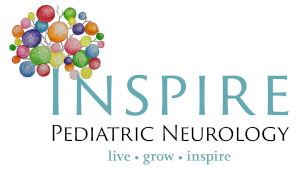Tics-Tourette Syndrome
What is Tourette Syndrome?
Tourette Syndrome is a disorder of the nervous system that causes people to have motor and vocal tics. Tics are sudden and repetitive twitches, movements, or sounds. Tics are involuntary but briefly suppressible motor movements or vocalizations.
Tourette Syndrome begins in childhood, usually when children are between 5-10 years old. Boys are more likely to be affected than girls and it often co-occurs with other related conditions. The two most common conditions are ADHD (50% to 70%) and obsessive-compulsive disorder (30% to 50%). Other common conditions are autism spectrum disorder, learning disabilities and anxiety disorders.
Signs and symptoms of Tourette Syndrome
Tics wax and wane: they can increase in severity and frequency during times of stress or illness or can change
in their appearance or sound.
A child with Tourette Syndrome might:
- Say or do inappropriate things
- Have difficulty concentrating in class because they are focusing on trying to control tics
- Need to have breaks from instruction to release symptoms or use relaxation techniques to help reduce the frequency or intensity of tics
- Be absent from school or dislike school because they are embarrassed by their tics
- Have poor school performance.
Two types of tics are associated with Tourette Syndrome:
- 1. Motor tics: These are sudden, involuntary movements such as exaggerated eye blinking, facial grimacing, head jerking, or shoulder shrugging. Tics can also manifest as complex body movements involve multiple different parts of the body at one time.
- 2. Vocal tics: These include repetitive throat clearing, sniffing, or humming.
Tics can be simple or complex:
- Simple motor tics usually involve just one muscle group, such as eye blinking or grimacing.
- Complex motor tics usually involve more than one muscle group and might look like a series of movements. For example, someone might touch a body part or another person repeatedly. In rare cases, people with Tourette Syndrome might have a tic that makes them harm themselves, such as head banging.
- Simple vocal tics can be throat clearing, sniffing, or grunting.
- Complex vocal tics can involve calling out, repeating other people's words (i.e. echolalia), or using profanity (i.e. coprolalia).
Tourette Syndrome is a neurological condition, not a psychological one. However, Tourette’s can cause psychological distress in children and this distress can make the tics more severe. People with Tourette Syndrome have higher rates of depression and anxiety.
Getting help if you are concerned your child has Tourette’s
Tourette Syndrome can impact children’s school performance, relationships and health. If you or your child’s doctor have concerns for Tourette Syndrome, seeking help early is essential. At Inspire Pediatric Neurology we offer a comprehensive neurological consultation for assessing and diagnosing Tourette Syndrome. Our expert pediatric neurologist, Dr. Sidhu, will look at your child’s individual symptoms and consider other related conditions to form a personalized treatment plan for your child.
